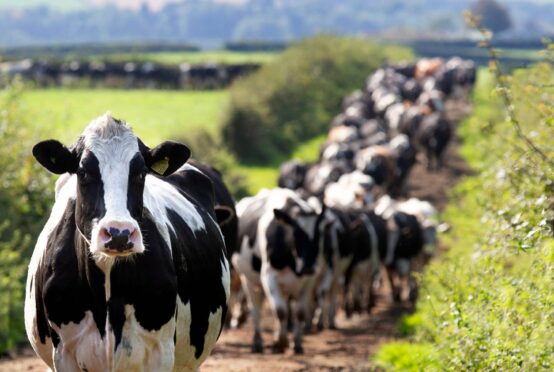The long-awaited milk contract legislation is expected to be brought forward at Westminster in the spring.
It is designed to open the door to fairer supply chains in other sectors according to Tracey Roan, milk policy manager at NFU Scotland (NFUS).
Commenting on progress, Tracey says: “NFUS remains at the forefront of lobbying for reform to deliver fairness and transparency to the milk supply chain. Alongside other UK farming unions, we have been pushing for contract reform in the sector since 2011.
“The voluntary code on milk contracts, introduced in 2012, attempted to address the imbalances in the chain but few milk purchasers adhered to its principles.
The UK Government subsequently stated its desire to end unfair practices in the supply chain and it is expected that a Statutory Instrument on milk contracts will be brought forward by the DEFRA this Spring.
“In recent times, the Union’s Milk Committee has established a sub-group dedicated to contract legislation reform and following the UK Government’s latest consultation on milk contracts.
NFU Scotland submitted a significant number of amendments that it believes would strengthen any potential legislation on behalf of dairy farmers. We will continue to work together with Defra, in the crucial weeks ahead, to get this over the line.
It remains imperative that the draft regulation, when eventually laid, is fit for purpose, and delivers the fairness and transparency that everyone is seeking, including the Government.
We also continue to highlight nuances exclusive to the dairy supply chain in Scotland, which underlines the importance of delivering appropriate regulation.
Getting it right is hugely important as successful contract reform in this area has implications for what might be delivered to improve contractual arrangements in other sectors.
Muller chief executive Rob Hutchison says: “I am fully supportive of the intent and the need for change and, while setting the milk price would always be difficult to manage, Muller is ‘pretty confident they will be compliant’ when the legislation comes in.
Continued milk output can no longer be taken for granted, with increased investment demands from regulations and a noticeable decline in overall sector confidence.
While the number of dairy herds has been on the decline for many years, milk output has remained relatively stable. But the environment for UK dairy farmers is changing quickly.
Mr Hutchison added: “We are taking it incredibly seriously and monitoring it very carefully. Being such a big dairy business, it is really important we have milk going forward.”
We cannot be complacent that the volume lost from farmers exiting the industry will be picked up by other farms, he said.
“There has been a slow, but sure, 2-3 per cent increase in demand at a global level – that should give cause for long-term prospect for UK dairy.”
The Courier was unable to speak to a dairy farmer for comment but spoke to David Handley from Farmers for Action. He said: “Sorry I can’t help, there are not many farmers left that will stand up.”

